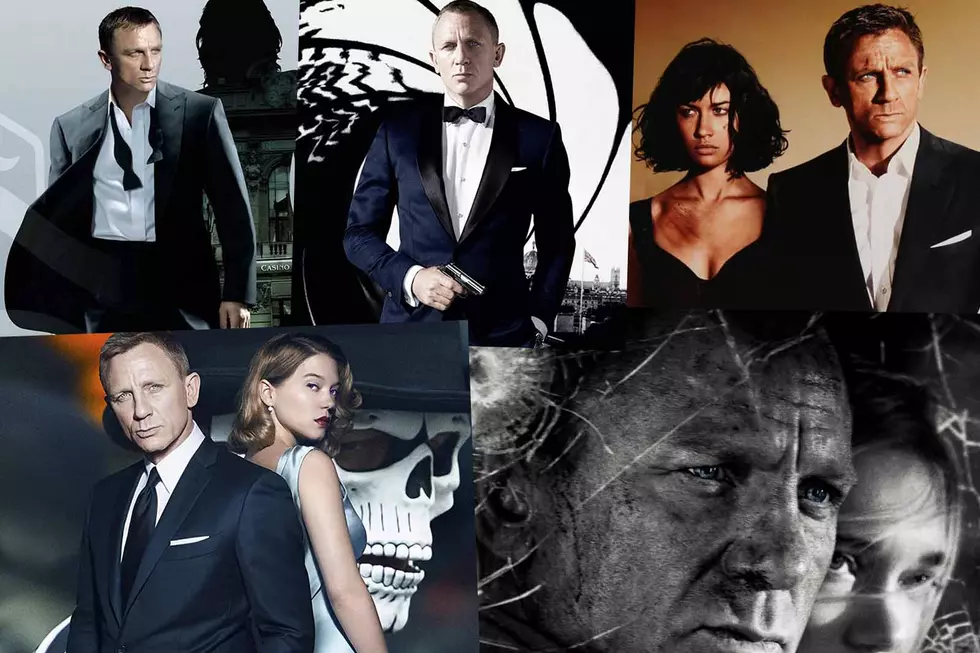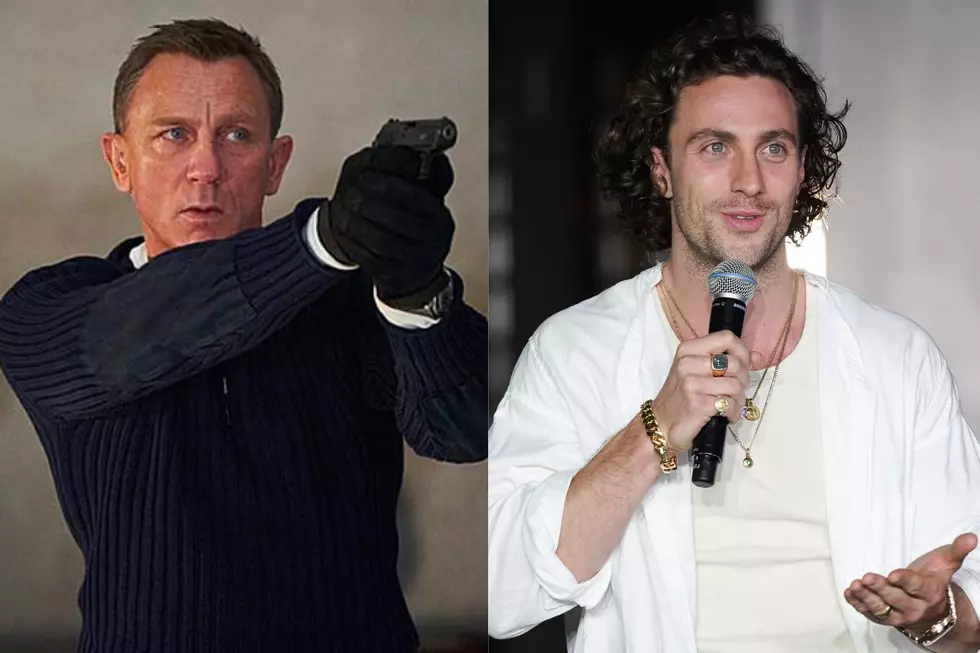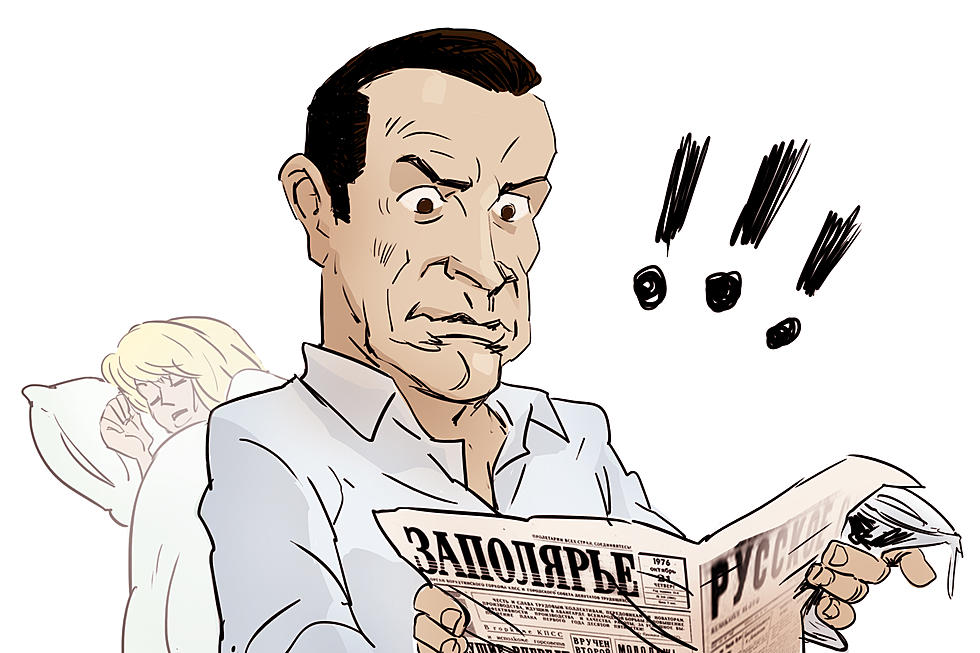
The Stories Behind All Five Daniel Craig James Bond Movies
Daniel Craig became the new James Bond in 2006, portraying the iconic British secret agent in five movies over the next 15 years.
The actor may initially have seemed like an odd choice to play 007, based on his looks. Instead of tall and dashing like all previous Bonds, starting with Sean Connery, Craig was shorter and light-haired. But he was also more muscular and steely eyed, which allowed for more emphasis to be placed on the colder, violent side of Bond's personality. Craig's interpretation of the role returned a sense of realism to James Bond movies after years of silly escapism, particularly during the Timothy Dalton and Pierce Brosnan eras.
Four Bond movies starring Craig have been released so far. A fifth and final film, No Time to Die, is expected in 2021. Read about all of them below.
'Casino Royale' (2006)
Casino Royale did away with some of the cliches that had gotten out of hand in the previous decades - the gadgets, wisecracks and women with suggestive names - and replaced them with more realistic and classic 007 action, albeit with a 21st-century edge. Based on Ian Fleming's first novel in the series, Casino Royale goes all the way back to the beginning, with James Bond earning his 00 status in the opening scene. His first mission is to stop a banker from funding terrorist activities. It eventually leads to a poker tournament in Montenegro (a modern concession that swaps out the usual baccarat), where Bond is poisoned and tortured before he saves the day.
Read More: How 'Casino Royale' Rebooted James Bond for the 21st Century
'Quantum of Solace' (2008)
Craig's second Bond film restored another aspect of the franchise's earliest entries: the crime organization. Quantum, revealed years later to be a subsidiary of the classic 007 syndicate SPECTRE, hatches a plot to overthrow the Bolivian government in order to control the county's water supply. The confusing story, which finds 007 globe-trotting from Italy to Austria to Haiti to La Paz to, ultimately, Russia, is secondary to the movie's central angle: Bond's desire for revenge after the killing of his girlfriend at the end of Casino Royale. In 2012, a study revealed that Quantum of Solace was the most violent of all the Bond movies, even though, at only 106 minutes, it's also the shortest.
Read More: The New James Bond Turns Up the Violence in 'Quantum of Solace'
'Skyfall' (2012)
Director Sam Mendes took over the Bond series beginning with Skyfall. He brought back Q, a reworked Moneypenny and some of the levity missing from the previous two films. He also gave Bond a bit of vulnerability as he proves himself ready to return to duty after a failed mission. Perhaps Mendes' greatest contribution is the strong villain played by Javier Bardem: Raoul Silva, a former MI6 agent, has a hard drive that contains the identities of undercover agents. He also plans to kill M as part of a revenge plot. The entire thing climaxes at Skyfall, the Scottish estate where Bond was raised.
Read More: How 'Skyfall' Became One of the Best James Bond Movies Ever
'Spectre' (2015)
With the new Bond universe established, it was time to bring back the franchise's most famous villain: SPECTRE head Ernst Stavro Blofeld, who hadn't appeared in a Bond movie since 1971's Diamonds Are Forever. Spectre reached deep into the 007 novels for Hannes Oberhauser, a father figure to the young Bond and Blofeld's biological dad. When the spy and villain finally come face-to-face, everything gets tied to all of Craig's previous 007 movies.
Read More: 'Spectre' Revives James Bond's Most Iconic Villain
'No Time to Die' (2021)
Craig planned to walk away from Bond after Spectre, citing numerous injuries he'd sustained in the role. But he was convinced to do one more movie. Originally scheduled for release in April 2020, No Time to Die has now been pushed back until April 2021 due to the coronavirus pandemic. Not much is known about the film's plot other than it involves Bond coming out of retirement to find a missing scientist. In the years following his retirement, Bond's iconic number was given to Nomi (Lashana Lynch), the first person of color and first woman to be called 007 in the Bond universe. Christoph Waltz returns as Blofeld, but the main villain this time is Safin, played by Rami Malek in his first major role since his Oscar-winning turn as Freddie Mercury in Bohemian Rhapsody. Online speculation says his character is a reboot of Dr. No, the titular villain of the first Bond film, but Malek refused to divulge any details.
Abandoned 007: Six James Bond Films That Were Never Made
More From Ultimate Classic Rock









